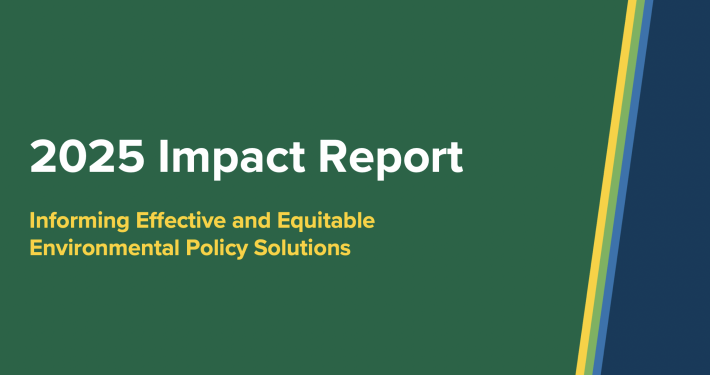February 13, 2024
Research informs heat equity solutions to improve human well-being and quality of life
Learn about our recent policy impact and new research projects
February 13, 2024
Learn about our recent policy impact and new research projects
A mother and child exposed to heat. Photo by Umesh Negi / iStock
The Luskin Center for Innovation’s (LCI) heat equity program identifies climate solutions that improve human well-being and quality of life where we live, work, learn, and play. Our approach adds new insight to existing scholarship and practice that has focused on managing extreme heat events to avoid acute death and heat illness, or regional urban heat islands that chronically increase land and air temperatures.
Research on acute and chronic heat issues does not fully address the ways that local conditions increase heat burden, which is what a temperature ‘feels like’ to low income, communities of color, and other sensitive groups disproportionately exposed in their daily lives.
Our research has demonstrated that existing metrics and policies can inadvertently lead to maladaptive practices, such as an over emphasis on surface materials and land use policies that exacerbate heat burden among sensitive groups. We deploy a highly stakeholder-engaged process to arm governments at all levels with human-centered data (e.g., individual heat burden, shade) and holistic policy solutions that make it easier to implement cooling solutions.
For example, our team developed three policy briefs on overall heat management, heat-resilient homes, and heat management in public schools. Following this effort, we released the Heat-Resilient Schools Resource Kit: a set of fact sheets and infographics to help communicate the key challenges heat poses to schools, solutions that can address heat inequities, and the top areas in which the state should take action. All of these materials were supported by the Resources Legacy Fund.
Drawing on calls like these for greater protections for California’s students, several bills were introduced in the 2022 and 2023 legislative cycles, including two that were signed into law. SB 515 (Stern) makes it easier to install shade structures on school playgrounds. AB 1653 (Sanchez) requires better temperature monitoring to determine if conditions are safe for after-school athletics.
LCI’s important heat equity research continues with an unprecedented amount of support. See below for some examples.
1. Identifying where and when people are heat-exposed
In partnership with the UCLA Institute for Environment and Sustainability, LCI will extend our shade equity planning work in Los Angeles and integrate cell-phone mobility data to understand where and when people are exposed to heat. We can then overlay other information, such as temperature and shade maps, to better inform decision-making to mitigate heat hazards. Funding for this research is provided jointly by the California Office of Emergency Services and the Federal Emergency Management Agency.
2. The first ever national heat map of cities across the U.S.
In partnership with American Forests, LCI will create the first-ever national heat equity map for most developed areas of the U.S. as an add-on feature to American Forests’ Tree Equity Score. For three focal cities (Austin, Detroit, and Phoenix), we will produce higher-resolution, stakeholder-engaged “data stories” to demonstrate the role of shade in heat-equity planning. This work is funded by the Robert Wood Johnson Foundation.
3. Social determinants of health data in public health systems: advancing health equity in at-risk neighborhoods in Corpus Christi, Texas
Communities everywhere are grappling with ways to become more resilient to climate change, which means planning for multiple hazards and factoring in social causes and consequences. UCLA will lead efforts to understand how hotter conditions affect the health and well-being of disadvantaged groups in Corpus Christi, Texas. This work is supported by the National Academy of Sciences via Texas A&M University.
To learn more about our heat equity research, see our website.
Get our latest research in your inbox.
 The Luskin Center for Innovation welcomes new doctoral researchers
The Luskin Center for Innovation welcomes new doctoral researchers
Learn more about their interests and work.
 UCLA Luskin Center for Innovation 2025 Impact Report
UCLA Luskin Center for Innovation 2025 Impact Report
Informing effective and equitable environmental policy solutions.
 Urban wildfire: water system capacities and limitations
Urban wildfire: water system capacities and limitations
Researchers convene statewide experts to assess firefighting capacity, infrastructure gaps, and policy solutions.

 Introducing our new events and operations coordinator, Héctor Osorio
Introducing our new events and operations coordinator, Héctor Osorio